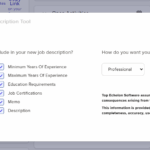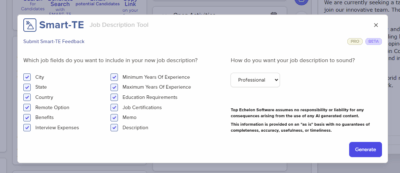Writing a resume is an essential part of any job application process, and it can be a daunting task for many people. A well-written resume can help you stand out from the competition and increase your chances of landing an interview. However, there are several common mistakes that people make when writing a resume that can hurt their chances of getting hired. In this article, we will discuss some of the most common mistakes to avoid when writing a resume.
Grammatical and spelling errors
One of the most common mistakes people make when writing a resume is failing to proofread it thoroughly for grammatical and spelling errors. These errors can make your resume look unprofessional and careless, which can be a turn-off to potential employers. To avoid these mistakes, use a spell-check feature on your computer or mobile device and read your resume carefully, line by line.
Lack of clarity and structure
Your resume should be clear and easy to read. Use bullet points and headings to structure your information and make it easy to skim. Also, make sure your font size and type are easy to read. Avoid using fancy fonts or colors, as they can make your resume look cluttered and unprofessional.
Being too generic
Another common mistake people make when writing a resume is being too generic. It’s important to tailor your resume to the specific job you are applying for. Review the job description carefully and include the skills and experiences that match the requirements of the position. This can help you stand out from other applicants and show that you are the right fit for the job.
Including irrelevant information
When writing a resume, it’s important to include only relevant information. Avoid including personal information such as your age, marital status, or religion, as this information is not relevant to your qualifications for the job. Instead, focus on your education, work experience, and skills that are relevant to the job you are applying for.
Not quantifying accomplishments
Another mistake people make when writing a resume is not quantifying their accomplishments. Instead of simply listing your job duties, include specific achievements and accomplishments that demonstrate your skills and experience. For example, if you increased sales by 20% at your previous job, include that information in your resume. This can help you stand out from other applicants and show that you are results-oriented.
Being too long or too short
Your resume should be concise and to the point, but it should also include all the relevant information. A one-page resume is often the best option, but if you have extensive work experience, you may need to use two pages. On the other hand, a resume that is too short can make it seem like you lack experience or qualifications. Strike a balance between being concise and thorough.
Using a generic objective statement
Objective statements are often included at the top of resumes, but they can be a waste of space if they are too generic. Instead of using a generic objective statement such as “to obtain a position in a dynamic company,” use this space to highlight your specific skills and qualifications for the job.
Including outdated or irrelevant work experience
If you have work experience that is outdated or not relevant to the job you are applying for, it’s best to leave it off your resume. Instead, focus on the experiences that are most relevant to the job you are applying for. This can help you avoid cluttering your resume with irrelevant information and help you stand out as a strong candidate.
Failing to tailor your resume for each job
Finally, one of the biggest mistakes people make when writing a resume is failing to tailor it for each job they apply for. Each job is unique, and the requirements and qualifications may vary. To maximize your chances of getting hired, take the time to review the job description carefully and tailor the resume for each job for which you apply.








